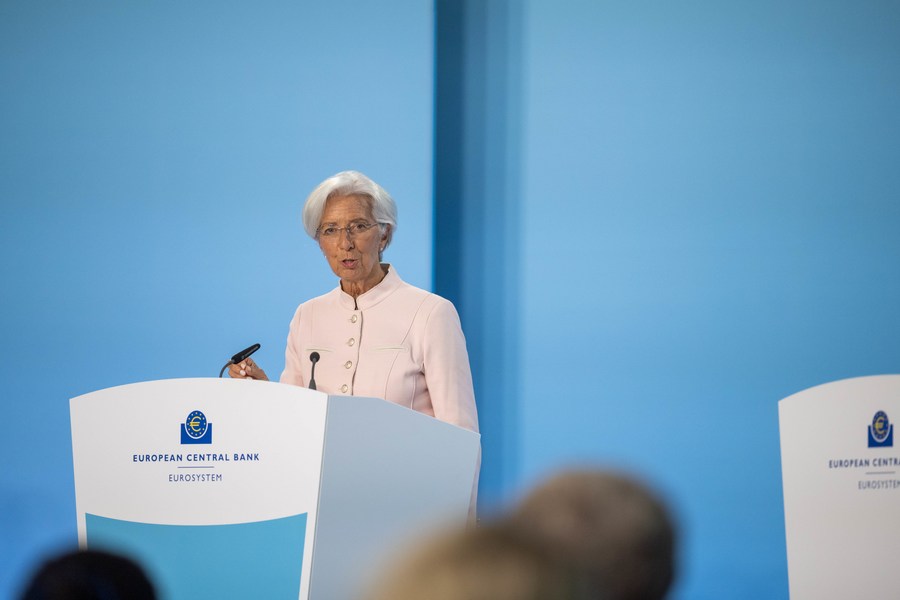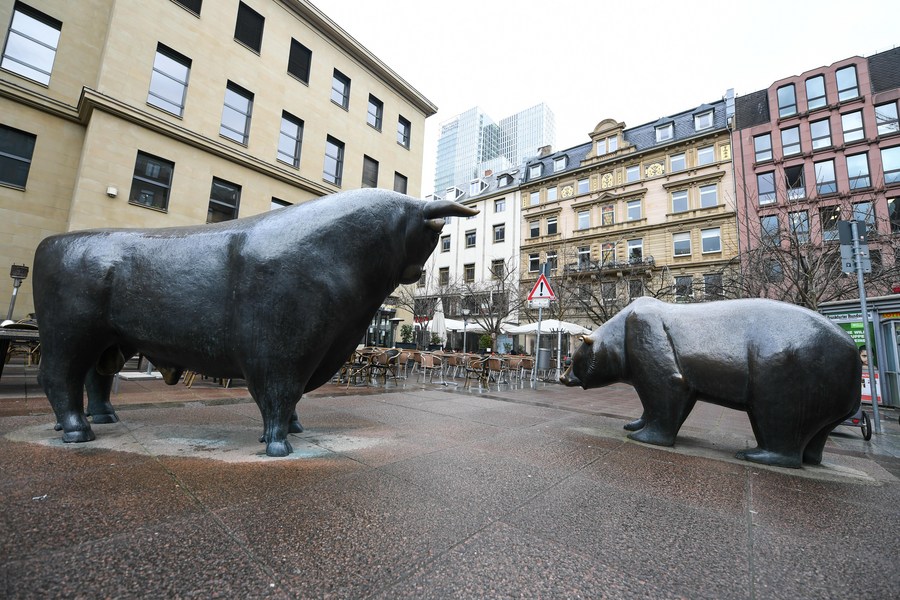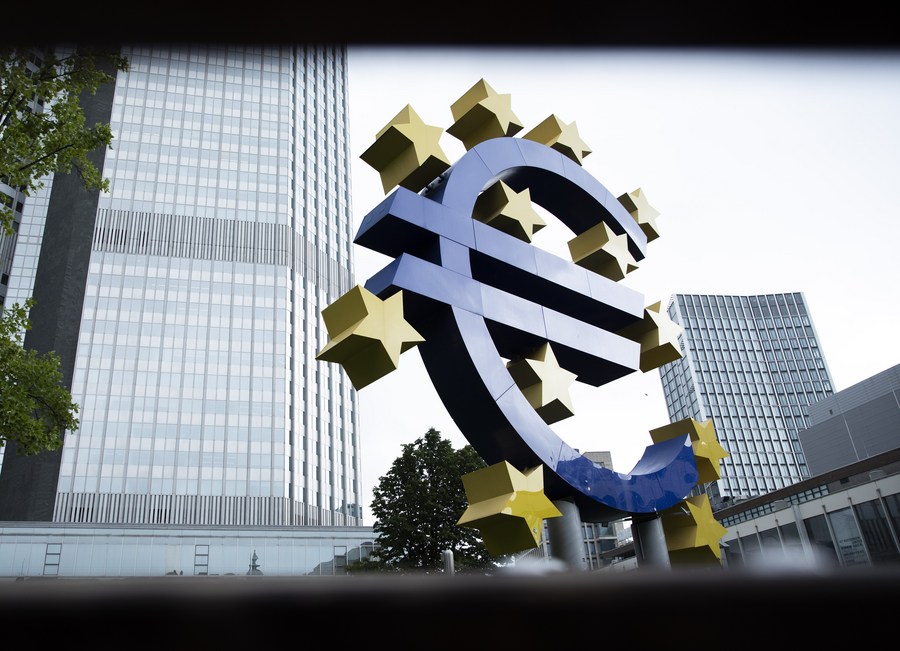
European Central Bank (ECB) President Christine Lagarde attends a press conference in Frankfurt, Germany, Sept. 14, 2023. (ECB/Handout via Xinhua)
European stocks rose after the ECB raised interest rates to 4.0 percent, signaling a potential end to a series of rate hikes aimed at curbing inflation.
ROME, Sept. 14 (Xinhua) -- European stocks closed higher on Thursday after the bloc's Central Bank (ECB) raised interest rates to 4.0 percent, but hinted this could be the last in a record-setting series of rate hikes.
The European Central Bank (ECB) raised rates for the 20-nation euro currency zone by 25 basis points to 4.0 percent, the highest they have ever been since the creation of the euro nearly a quarter of a century ago. This represents a dramatic change from a negative 0.5 percent rate in June 2022.
The long series of interest rate hikes has been aimed at curbing inflation, which began soaring last year following the start of the conflict between Russia and Ukraine. This unbalanced global supplies of petroleum and natural gas, and inflation in the eurozone reached a record high of 10.6 percent in October of last year.

A man fills the tank of his car at a gas station near Paris, France, Aug. 18, 2022. (Xinhua/Gao Jing)
However, inflation levels have risen in just one of the ten months since then, and in August the rate was less than half the peak rate at 5.3 percent. Nevertheless, the ECB has remained vigilant in steadily pushing up interest rates as a way of drying up the money supply.
According to a statement from the ECB on Thursday, however, an end to that policy may be near. Current interest rates may be high enough to tamp down inflation, the ECB has said.
"Based on its current assessment, the governing council considers that the key ECB interest rates have reached levels that, if maintained for a sufficiently long duration, will make a substantial contribution to the timely return of inflation to the target," its statement said.
This helped send stocks higher across Europe, notwithstanding the latest rate hike.

Photo taken on Feb. 24, 2022 shows the Bull and Bear sculptures outside the Frankfurt Stock Exchange in Frankfurt, Germany. (Xinhua/Lu Yang)
Among the continent's main stock exchanges, the main blue chip index in Frankfurt gained 1.2 percent, while Madrid's index went up by 1.3 percent. In Amsterdam, Milan, and Paris the indexes were all up 1.4 percent. Meanwhile, the broad Europe Stoxx 600 index rose by 1.6 percent.
The continent's biggest winner was the London Stock Exchange's blue chip index, which gained 2.0 percent, although it is not in the euro currency zone.
The euro also lost ground to the U.S. dollar and other currencies, since lower interest rates in the euro zone reduce the currency's attractiveness to some investors. At the end of the trading day, the euro had lost 0.5 percent of its value against the U.S. dollar compared to the end of trading Wednesday.
Despite indicating that interest rates may be high enough, the ECB did not definitively state that Thursday's rate would be its last. In its statement, the bank said that decisions on rates would depend on how inflation reacts in the coming months.

This photo taken on July 27, 2023 shows the Euro sign in Frankfurt, Germany. (Xinhua/Zhang Fan)
"The Governing Council's future decisions will ensure that the key ECB interest rates will be set at sufficiently restrictive levels for as long as necessary," it said.
In its projections for the eurozone, the ECB said its full-year inflation projections are for 5.6 percent, up from its previous forecast of 5.4 percent. For 2024, it is predicting average inflation of 3.2 percent, compared to its previous prediction of 3.0 percent. The ECB's long-term target for monthly inflation is 2.0 percent. ■












